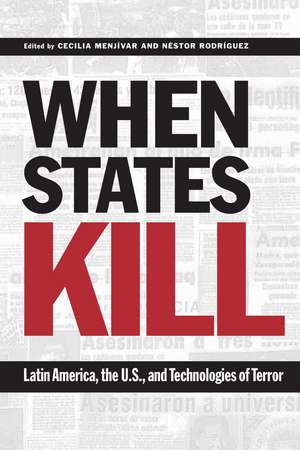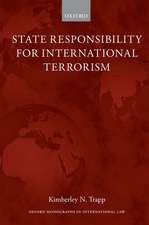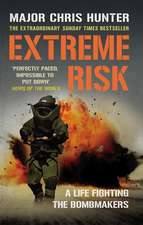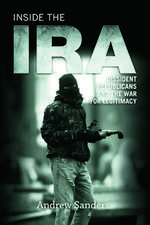When States Kill: Latin America, the U.S., and Technologies of Terror
Editat de Cecilia Menjívar, Néstor Rodríguezen Limba Engleză Paperback – iul 2005
Organized by region, the essays in this book address the topic of state-sponsored terrorism in a variety of ways. Most take the perspective that state-directed political violence is a modern development of a regional political structure in which U.S. political interests weigh heavily. Others acknowledge that Latin American states enthusiastically received U.S. support for their campaigns of terror. A few see local culture and history as key factors in the implementation of state campaigns of political violence. Together, all the essays exemplify how technologies of terror have been transferred among various Latin American countries, with particular attention to the role that the United States, as a "strong" state, has played in such transfers.
Preț: 281.18 lei
Nou
Puncte Express: 422
Preț estimativ în valută:
53.81€ • 55.97$ • 44.42£
53.81€ • 55.97$ • 44.42£
Carte tipărită la comandă
Livrare economică 14-28 aprilie
Preluare comenzi: 021 569.72.76
Specificații
ISBN-13: 9780292706798
ISBN-10: 0292706790
Pagini: 388
Ilustrații: 1 graph, 11 tables
Dimensiuni: 152 x 229 x 20 mm
Greutate: 0.56 kg
Editura: University of Texas Press
Colecția University of Texas Press
ISBN-10: 0292706790
Pagini: 388
Ilustrații: 1 graph, 11 tables
Dimensiuni: 152 x 229 x 20 mm
Greutate: 0.56 kg
Editura: University of Texas Press
Colecția University of Texas Press
Notă biografică
Cecilia Menjívar is associate professor in the Department of Sociology and the School of Justice and Social Inquiry at Arizona State University.
Néstor Rodríguez is Professor and Chair of the Department of Sociology at the University of Houston, where he is also Codirector of the Center for Immigration Research.
Néstor Rodríguez is Professor and Chair of the Department of Sociology at the University of Houston, where he is also Codirector of the Center for Immigration Research.
Cuprins
- Acknowledgments
- Part I. Introduction
- Chapter 1. State Terror in the U.S.-Latin American Interstate Regime by Cecilia Menjívar and Néstor Rodríguez
- Chapter 2. Operation Condor as a Hemispheric "Counterterror" Organization by J. Patrice McSherry
- Part II. Central America and Mexico
- Chapter 3. "The Blood of the People": The Guardia Nacional's Fifty-year War against the People of Nicaragua, 1927-1979 by Richard Grossman
- Chapter 4. The Culture and Politics of State Terror and Repression in El Salvador by Aldo A. Lauria-Santiago
- Chapter 5. Caught in the Crossfire: Militarization, Paramilitarization, and State Violence in Oaxaca, Mexico by Kristin Norget
- Chapter 6. Bloody Deeds/Hechos Sangrientos: Reading Guatemala's Record of Political Violence in Cadaver Reports by M. Gabriela Torres
- Chapter 7. U.S. Militarization of Honduras in the 1980s and the Creation of CIA-backed Death Squads by Joan Kruckewitt
- Chapter 8. "No Hay Rosas Sin Espinas": Statecraft in Costa Rica by Annamarie Oliverio and Pat Lauderdale
- Part III. South America
- Chapter 9. The Colombian Nightmare: Human Rights Abuses and the Contradictory Effects of U.S. Foreign Policy by John C. Dugas
- Chapter 10. The Path of State Terror in Peru by Abderrahman Beggar
- Chapter 11. Turning on Their Masters: State Terrorism and Unlearning Democracy in Uruguay by Jeffrey J. Ryan
- Chapter 12. Producing and Exporting State Terror: The Case of Argentina by Ariel C. Armony
- Part IV. Conclusion
- Chapter 13. New Responses to State Terror by Cecilia Menjívar and Néstor Rodríguez
- About the Contributors
- Index
Recenzii
The combination of a regional framework and original case studies makes this volume an important addition to research on the nature of U.S. involvement in state violence and human rights violations in Latin America.
Descriere
Thirteen essays exploring state-sponsored terrorism in Latin America and its connection to the U.S.
















